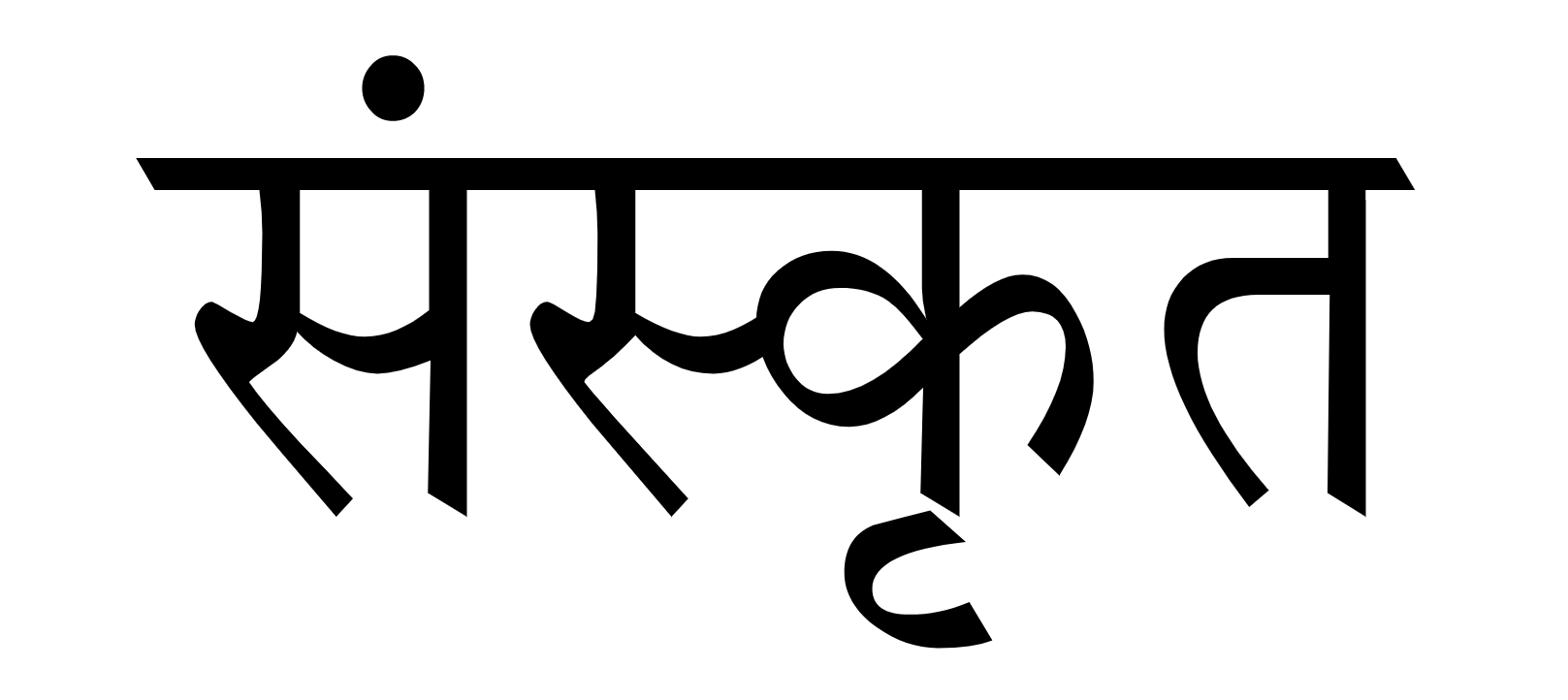Welcome to my first ever Wikipedia trail. I often find myself mindlessly trekking through Wikipedia's pages, so I might as well get some class credit for it!
For this time, I decided to dive into Sanskrit, since I am looking into having Sanskrit as the central theme for my storybook. And, as a linguistics major, I always enjoy a good foreign language.
Sanskrit in Sanskrit : Wikipedia Commons
This was a pretty basic starting point. I am learning about Sanskrit, so start with the basics, right? Here are some of what I thought were important takeaways. First, basic facts, Sanskrit is an Indian language with deep religious, cultural, and political significance. However, it has also migrated with its speakers throughout Asia, and has subsequently played a major role in many of the religious traditions of Asia such as Hinduism, Buddhism, and Jainism, to name a few. Second, Sanskrit is not only part of the Indo-European language family, which makes it related to everything from Latin and Greek to German and Russian (which I had known), but it is also one of the oldest, documented languages of the world, dating back to the 2nd millennium BCE. Third, there are actually two forms of Sanskrit: Vedic Sanskrit (the language of ancient India) and Classical Sanskrit (the newer, standardized form of Sanskrit).
Page 2: Sanskrit Literature
In this first descent, I decided to dive more into the literary significance of Sanskrit, which lead me to practically every major Indian religious text. In keeping with a pattern seen across all cultures, language and religion go hand-in-hand, which meant that most of the oldest writings of Sanskrit are religious texts.
Bhagavad Gita written in Sanskrit (left) and translated into a Latin script (right) with an English translation (middle) and English commentary (bottom) : QuotesGram
Page 3: Sanskrit RevivalThis title interested me, not only because language revivals are fascinating (see the wildly successful Maori Language Revival in New Zealand), but because this implied that Sanskrit needed reviving. This confirmed for me what I was thinking, that Sanskrit, though still spoken today, was mainly contained within a religious sphere. In fact, only about 0.002 % of India's total population (still around 25,000 people) speak Sanskrit as their first language. This percent expands to a still-tiny 0.19% of Indias population when the category expands to speakers of Sanskrit in general. I also learned here that Sanskrit was never an official language of any Indian state until it became one of the official languages of Uttarakhand in 2010.
Page 4: List of English Words of Sanskrit Origin
This final deviation was mostly for fun, and I honestly wasn't expecting too many English words to have Sanskrit origins. BOY WAS I WRONG. Out of the 100+ words, here are some of my favorites: Avatar, Bandana, Candy, Cheetah, Crimson (!!), Juggernaut, Loot, Pundit, Sapphire, Shampoo, and Tank.


No comments:
Post a Comment